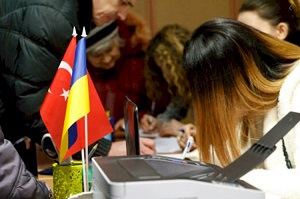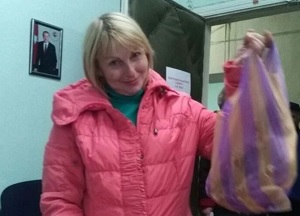German Chancellor Scholz to Visit Turkey: What’s on the Agenda?
Turkish Refugees in Germany: A Key Topic

German Chancellor Scholz to Visit Turkey: What’s on the Agenda?
ŞEHİTLER ÖLMEZ / TÜRKİYE
German Chancellor Olaf Scholz is set to visit Turkey on Saturday, a trip that comes at a time when both international and bilateral issues are highly pressing. This visit follows Scholz’s first official trip to Turkey as Chancellor in March 2022, and Turkish President Recep Tayyip Erdoğan’s subsequent visit to Berlin in November of last year.
Refugee Issue at the Forefront
One of the key topics expected to dominate discussions between Erdoğan and Scholz during their meeting in Istanbul is the ongoing refugee crisis. In recent months, Scholz has adopted a tougher stance on migration, responding to the rising political pressure surrounding the issue in Germany.
The issue gained renewed attention after a knife attack in Solingen in August, sparking public debates about immigration and deportations. Scholz’s Social Democratic Party (SPD) also faced defeats in state elections, with the far-right AfD gaining significant support, leading the German Chancellor to tighten immigration policies.
Turkish Refugees in Germany: A Key Topic
A critical point on the agenda involves Turkish nationals in Germany who have had their asylum applications rejected. After months of negotiations, it was reported that Turkey has agreed to accept 500 rejected Turkish asylum seekers per week in exchange for Germany’s approval of Eurofighter jet sales to Turkey.
Germany’s Interior Minister Nancy Faeser confirmed these reports ahead of Scholz’s visit, stating, "Yes, there is an agreement in place, and with Chancellor Scholz’s visit, we hope to initiate the rapid return of Turkish nationals who do not have the right to stay in Germany. The weekly target of 500 is correct."
However, Turkey’s Ministry of Foreign Affairs previously denied these claims, stating that no such agreement regarding the deportation of Turkish citizens exists.
Migration and Eurofighter Sales Linked?
Scholz is expected to urge Erdoğan to provide more support in curbing illegal migration to Germany. Analysts believe the meeting will bring more clarity to this complex issue, with discussions potentially revolving around a broader agreement that could include arms sales.
Federal MP Macit Karaahmetoğlu from the SPD told VOA Turkish that Scholz’s primary goal is to stabilize relations with Turkey during a period of global instability. "We cannot afford to alienate Turkey. Working with Erdoğan may be difficult, but as a strategic bridge, we are dependent on Turkey," he said.
Karaahmetoğlu emphasized that Turkey also relies on Germany and Europe as economic partners. He pointed out the importance of maintaining stable alliances, especially in a rapidly changing world.
Germany’s Changing Stance on Eurofighter Sales
In a significant shift, Germany has approved the sale of €336 million worth of military equipment to Turkey, including air defense missiles and torpedoes for the Turkish Navy. This move marks a change in Germany’s stance, as it had imposed an arms embargo on Turkey following the 2019 military operation in northern Syria.
Germany’s potential sale of up to 40 Eurofighter Typhoon jets to Turkey has also been a subject of intense discussion. Scholz is expected to use this as a bargaining chip in negotiations with Erdoğan, particularly regarding the refugee issue.
Reviving the 2016 Refugee Agreement
As Germany grapples with rising domestic pressures over migration, Scholz is expected to push for a revival of the 2016 EU-Turkey refugee deal. This agreement, under which Turkey agreed to hold refugees in exchange for €6 billion, has faced significant challenges in recent years.
Scholz is also expected to propose new funding for Turkey to manage the ongoing refugee crisis, potentially offering arms sales as part of the deal. Experts suggest that Germany’s migration concerns could be tied to military cooperation with Turkey.
Other Topics on the Agenda: Akkuyu Nuclear Plant and Regional Security
Another issue likely to come up during Scholz’s visit is the dispute over equipment for the Akkuyu Nuclear Plant, which has faced delays due to Germany’s Siemens withholding crucial parts. Turkey argues that Siemens’ actions are unjustified, while Siemens cites compliance with export control laws due to Russia’s involvement in the project.
Regional security, particularly in the context of Ukraine and the Middle East, is also expected to feature prominently in discussions. With escalating tensions in Israel and Gaza, and the ongoing conflict in Ukraine, the need for a united strategy between Germany and Turkey has become increasingly critical.
Conclusion
As Scholz’s visit to Turkey approaches, the stakes are high for both countries. Whether the discussions will lead to a new era of cooperation remains to be seen, but it’s clear that both leaders face immense challenges, from managing migration to balancing international relations in an increasingly volatile world.
Cem Dalaman, VOA Turkish






































